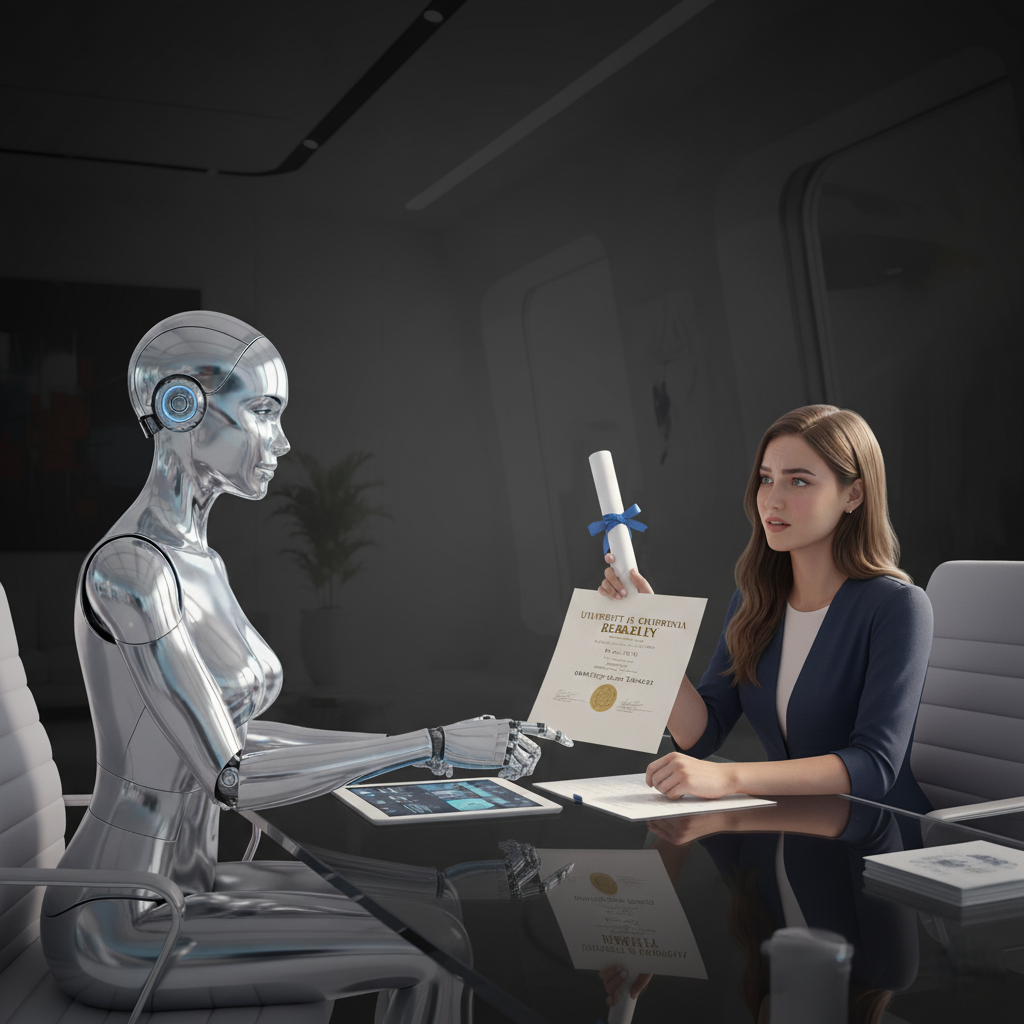Key Takeaways:
- Elon Musk, a South African-born entrepreneur and engineer who founded SpaceX, co-founded Tesla, and co-founded Neuralink, among other ventures, currently resides in the United States.
- Elon Musk’s net worth hovers around $200 billion, making him one of the richest individuals on the planet and placing him among the wealthiest people in modern history.
- Musk, an influential figure with a strong social media presence, often sparks debates and influences opinions on varied topics like technology, science, politics, and philosophy.
Introduction
In the realm of modern entrepreneurship and innovation, few names loom as large as Elon Musk. The South African-born engineer and business magnate has become a household name, synonymous with audacious visions, groundbreaking technologies, and a relentless drive to shape the future of humanity. From revolutionizing online payments with PayPal to spearheading the electric vehicle revolution with Tesla, and from launching rockets into space with SpaceX to digging transportation tunnels with The Boring Company, Musk’s impact spans across industries and planetary boundaries.
But who is the man behind these ambitious endeavors? What drives his insatiable appetite for innovation and risk-taking? In this comprehensive article, we’ll delve into the life and success of Elon Musk, exploring his upbringing, his entrepreneurial journey, the key principles and habits that have fueled his achievements, and the profound impact he continues to have on our world. Whether you’re an aspiring entrepreneur seeking inspiration or simply curious about one of the most influential figures of our time, this piece will provide a thorough understanding of the visionary that is Elon Musk.
A Titan of Wealth in the Modern Era
Elon Musk’s staggering net worth of around $200 billion places him in an exclusive club of the wealthiest individuals on the planet. His fortune is a testament to his visionary entrepreneurship and the success of his groundbreaking companies, such as Tesla and SpaceX. Musk’s wealth is a remarkable achievement, solidifying his position as one of the richest people in modern history.
With a net worth that surpasses the GDP of many nations, Musk’s wealth is a reflection of his innovative spirit and unwavering determination. His companies have disrupted industries, revolutionized transportation, and pushed the boundaries of space exploration. As a result, Musk’s wealth has soared, propelling him to the pinnacle of global wealth rankings.
Musk’s journey to becoming one of the wealthiest individuals on the planet is a testament to the power of vision, perseverance, and a relentless pursuit of innovation. His wealth serves as a reminder of the immense potential that lies in transformative ideas and the ability to turn them into reality, shaping the course of human progress.
Early Life and Education
Elon Reeve Musk was born on June 28, 1971, in Pretoria, South Africa, to Maye Musk, a model and dietitian, and Errol Musk, an electromechanical engineer. From a young age, Musk displayed an insatiable curiosity and a penchant for technology. At the age of 10, he developed an interest in computing and taught himself programming. By the time he was 12, Musk had created a video game called “Blastar” and sold its code to a computer magazine for approximately $500.
Musk’s childhood was not without its challenges. His parents divorced when he was nine, and he faced severe bullying in school. These early experiences would shape his resilient and determined character. In 1989, at the age of 17, Musk moved to Canada to attend Queen’s University, avoiding mandatory service in the South African military. He later transferred to the University of Pennsylvania, where he earned bachelor’s degrees in physics and economics.
The Entrepreneurial Journey Begins
After completing his studies, Musk enrolled in a Ph.D. program in applied physics and materials science at Stanford University. However, his entrepreneurial spirit quickly took over, and he dropped out after just two days to pursue his business aspirations in the burgeoning internet industry.
In 1995, Musk and his brother Kimbal founded Zip2, a company that provided online city guides and directories to newspapers. The venture was a success, and in 1999, Compaq acquired Zip2 for nearly $300 million. Musk’s share of the sale was approximately $22 million.
Revolutionizing Online Payments: PayPal
Following the sale of Zip2, Musk co-founded X.com, an online financial services and email payment company. In 2000, X.com merged with Confinity, which had a money transfer service called PayPal. Musk became the CEO of the merged company and focused on expanding PayPal’s reach.
Under Musk’s leadership, PayPal revolutionized online payments and became the dominant player in the market. In 2002, eBay acquired PayPal for $1.5 billion, and Musk, the largest shareholder, walked away with $165 million.
The Birth of SpaceX
With a newfound wealth and a burning passion for space exploration, Musk set his sights on revolutionizing the aerospace industry. In 2002, he founded Space Exploration Technologies Corporation, better known as SpaceX, with the ultimate goal of enabling human colonization of Mars.
Musk’s approach to space travel was radically different from that of established players. He believed that by applying engineering principles and a Silicon Valley mindset, he could significantly reduce the cost of launching rockets and make space more accessible. SpaceX developed reusable rocket technology, a concept that was met with skepticism by industry experts.
However, Musk’s vision and determination paid off. In 2008, SpaceX made history by launching the first privately-funded, liquid-fueled rocket to reach orbit. The company went on to secure contracts with NASA to deliver cargo and, eventually, astronauts to the International Space Station. SpaceX’s reusable Falcon 9 rockets have dramatically reduced the cost of space launches, and the company continues to push boundaries with the development of the Starship, a fully reusable spacecraft designed for interplanetary travel.
Tesla and the Electric Vehicle Revolution
While SpaceX was making strides in the space industry, Musk turned his attention to another pressing issue: sustainable transportation. In 2004, he joined electric vehicle manufacturer Tesla Motors as chairman of the board and became its CEO and product architect in 2008.
Under Musk’s leadership, Tesla disrupted the automotive industry with its innovative, high-performance electric cars. The company’s first vehicle, the Tesla Roadster, demonstrated that electric cars could be stylish, fast, and long-range. Tesla went on to launch the Model S, Model X, and Model 3, each setting new standards for electric vehicle performance and efficiency.
Musk’s vision for Tesla extends beyond just producing electric cars. He aims to accelerate the world’s transition to sustainable energy by offering a complete ecosystem of clean energy products, including solar panels, energy storage systems, and electric vehicles. Tesla’s acquisition of SolarCity in 2016 further solidified this vision.
The Boring Company and Hyperloop
Never one to rest on his laurels, Musk has continued to pursue ambitious projects across various industries. In 2016, he founded The Boring Company, an infrastructure and tunnel construction venture aimed at alleviating traffic congestion. The company is developing high-speed underground transportation systems in several cities, with the goal of enabling rapid, efficient travel.
Musk has also been a vocal proponent of the Hyperloop, a proposed high-speed transportation system that would use vacuum tubes to propel passenger pods at speeds of up to 700 miles per hour. While Musk is not directly involved in the development of Hyperloop systems, his initial concept and advocacy have inspired numerous companies and research groups to pursue the technology.
Neuralink and the Future of Brain-Machine Interfaces
In 2016, Musk co-founded Neuralink, a neurotechnology company focused on developing brain-machine interfaces. The company’s long-term goal is to create devices that can be implanted in the human brain, allowing for direct communication between the brain and artificial intelligence systems.
Musk believes that brain-machine interfaces could have profound implications for the future of humanity, potentially enabling telepathic communication, enhancing cognitive abilities, and even merging human consciousness with AI. While the technology is still in its early stages, Neuralink’s progress has garnered significant attention and investment.
Principles and Habits of Success
Throughout his entrepreneurial journey, Elon Musk has demonstrated a unique set of principles and habits that have contributed to his remarkable success. These include:
- First-principles thinking: Musk approaches problems by breaking them down to their fundamental truths and reasoning up from there, rather than relying on analogies or conventional wisdom.
- Relentless work ethic: Musk is known for his incredible work ethic, often putting in 80 to 100 hours per week and sleeping at his factories when necessary.
- Embracing failure: Musk views failure as an opportunity to learn and improve. He encourages his teams to take risks and iterate quickly, learning from their mistakes along the way.
- Thinking big: Musk sets audacious goals and pursues them with unwavering determination. He believes in the power of bold visions to inspire and drive innovation.
- Continuous learning: Despite his numerous accomplishments, Musk remains a voracious learner, constantly reading, seeking out expert advice, and challenging his own assumptions.
- Attracting and empowering talent: Musk has a knack for attracting brilliant minds to his ventures and fostering a culture of innovation and excellence.
- Adaptability: In the face of setbacks and challenges, Musk has demonstrated remarkable adaptability, pivoting strategies and learning from failures to ultimately succeed.
Impact and Legacy
Elon Musk’s impact on the world extends far beyond the companies he has founded and the industries he has disrupted. His vision, determination, and relentless pursuit of innovation have inspired a new generation of entrepreneurs and changed the way we think about the future.
Through SpaceX, Musk has reignited public interest in space exploration and made significant strides towards making humanity a multiplanetary species. His work with Tesla has accelerated the global transition to sustainable energy and transportation, forcing traditional automakers to invest heavily in electric vehicles.
Musk’s influence also extends to the realm of public discourse. His active presence on social media, particularly Twitter, has made him a prominent voice on a wide range of topics, from technology and science to politics and philosophy. While his statements have sometimes been controversial, there is no denying the impact he has had on shaping public opinion and sparking conversations about the future of our world.
As Musk continues to pursue his ambitious visions, from colonizing Mars to revolutionizing transportation and merging human consciousness with AI, his legacy as one of the most influential and transformative figures of the 21st century seems all but certain. His story serves as a powerful reminder of the potential for individual vision, determination, and innovation to shape the course of human history.
Challenges and Controversies
Despite his numerous successes, Elon Musk’s journey has not been without its challenges and controversies. His leadership style, which is often described as demanding and uncompromising, has led to high turnover rates at his companies and accusations of a toxic work environment.
Musk has also faced criticism for his public statements and behavior, particularly on social media. His tweets have sometimes landed him in legal trouble, such as when he faced securities fraud charges for tweeting about taking Tesla private at $420 per share. More recently, his acquisition of Twitter and subsequent changes to the platform have sparked intense debate about free speech, content moderation, and the role of social media in society.
Additionally, some of Musk’s ventures have faced setbacks and delays. Tesla has struggled with production challenges and missed delivery targets, while SpaceX has experienced high-profile rocket failures and delays in its Starship program. The Boring Company’s projects have also faced regulatory hurdles and skepticism about their feasibility.
Despite these challenges, Musk has demonstrated a remarkable ability to persevere and adapt in the face of adversity. He has used setbacks as opportunities to learn and improve, and his companies have continued to push boundaries and achieve milestones that were once thought impossible.
Musk’s Role in OpenAI and Departure
Elon Musk was one of the co-founders of OpenAI when it launched as a non-profit research lab in 2015. He contributed $100 million in funding and helped recruit top AI talent like Ilya Sutskever. However, by 2018, Musk had grown frustrated with OpenAI’s progress compared to competitors like Google’s DeepMind.
In early 2018, Musk told OpenAI’s leadership that he believed the company had a “probability of success of 0” and that he planned to build an AGI competitor within Tesla. Musk wanted to take majority control of OpenAI and proposed merging it into Tesla as a “cash cow”. When OpenAI’s other leaders like Sam Altman and Greg Brockman rejected this plan, Musk chose to leave the company.
While Musk publicly cited a conflict of interest with Tesla’s AI efforts as his reason for departing, behind the scenes there was a power struggle over OpenAI’s future direction. Musk reneged on further funding he had pledged and told the OpenAI team he would be supportive of them finding their own path to raise billions of dollars.
After Musk’s departure, OpenAI transitioned to a “capped-profit” structure with major backing from Microsoft in order to acquire the resources needed to compete in the AI race. Musk has since criticized this as a betrayal of OpenAI’s original non-profit mission.
Launching xAI as an OpenAI Rival
In 2023, Musk founded a new artificial intelligence company called xAI to directly compete with OpenAI and other major AI labs. xAI’s stated mission is to “understand the true nature of the universe” and ensure the development of safe artificial general intelligence (AGI).
Musk has accused OpenAI of training its models to be “woke” and says xAI will focus on “maximum truth-seeking” AI. In November 2023, xAI released a prototype chatbot called Grok, which Musk claims has a “rebellious streak” and is willing to engage with controversial topics that ChatGPT avoids.
xAI has assembled a team of top researchers and engineers from OpenAI, Google, Microsoft, and other tech giants. The company plans to work closely with Musk’s other ventures like Tesla and X Corp while remaining an independent entity. In December 2023, xAI filed to raise $1 billion to fund its efforts to develop AGI technology.
Musk’s Critique of OpenAI and Lawsuit
As xAI has ramped up, Musk has become increasingly critical of OpenAI’s transition away from a fully open-source non-profit model. In March 2024, he escalated the rivalry by filing a lawsuit against OpenAI alleging that the company has abandoned its founding mission and principles.
Musk claims that OpenAI’s pivot to a for-profit structure and exclusive partnership with Microsoft violates an agreement he made with co-founders Sam Altman and Greg Brockman to keep the company non-profit and focused on benefiting humanity. He is seeking to compel OpenAI to open-source its models and technology.
OpenAI has fired back, claiming that no such binding agreement ever existed and releasing emails that purportedly show Musk supporting a for-profit future for the company before his 2018 departure. The company describes Musk’s lawsuit as “frivolous” and an attempt to advance his commercial interests with xAI.
The legal battle has sparked a broader debate in the AI community around principles of transparency and openness. Some see Musk’s critique of OpenAI as hypocritical given his own company’s closed-door development, while others believe OpenAI has strayed from its original open-source ideals.
As the rivalry between xAI and OpenAI heats up, the future of artificial intelligence – and which company’s approach will shape it – remains an open question. But the Musk-OpenAI feud makes clear that the path to AGI will be filled with competition, controversy, and clashing visions.
Musk’s Upbringing and Siblings
Elon Musk was born on June 28, 1971, in Pretoria, South Africa, to Maye and Errol Musk. He has two younger siblings, Kimbal and Tosca.
Kimbal Musk, born in 1972, is a restaurateur, chef, and entrepreneur. He is the co-founder of The Kitchen Restaurant Group and Big Green, a nonprofit that builds outdoor classrooms in schoolyards. Kimbal also serves on the boards of Tesla and SpaceX.
Tosca Musk, born in 1974, is a filmmaker and entrepreneur. She is the co-founder and CEO of Passionflix, a streaming service that focuses on bringing romance novels to the screen.
Musk has spoken about the close relationship he shares with his siblings and how their shared experiences shaped them. “We had a very tough upbringing,” he said in a 2017 Rolling Stone interview. “It was like growing up in a war zone.”
Marriages, Relationships, and Children
Musk has been married three times to two women. He first married Canadian author Justine Wilson in 2000. They had six sons together: Nevada Alexander (born in 2002, died at 10 weeks), twins Griffin and Xavier (born in 2004), and triplets Kai, Saxon, and Damian (born in 2006). Musk and Wilson divorced in 2008.
In 2010, Musk married British actress Talulah Riley. They divorced in 2012, remarried in 2013, and divorced again in 2016.
Musk began dating Canadian musician Grimes in 2018. They welcomed a son, X Æ A-12 (nicknamed “X”), in May 2020. In December 2021, Grimes gave birth to their daughter Exa Dark Sideræl (nicknamed “Y”) via surrogate. The couple had a third child, son Techno Mechanicus (nicknamed “Tau”), in mid-2022, also via surrogate. Musk and Grimes have had an on-and-off relationship and describe their partnership as “fluid”.
In November 2021, Musk quietly welcomed twins with Shivon Zilis, a top executive at his company Neuralink. The twins’ names have not been publicly revealed.
Musk now has a total of 11 living children: twins Strider and Azure with Zilis; X, Y, and Tau with Grimes; and twins Griffin and Vivian and triplets Kai, Saxon, and Damian with Wilson. His firstborn, Nevada, passed away from SIDS.
In 2022, Musk’s daughter Xavier legally changed her name to Vivian and gender to female. In court filings, she expressed her wish to no longer be related to Musk.
Views on Family and Population
Musk has been vocal about his concerns regarding declining birth rates, which he sees as one of the biggest threats to civilization. “I think one of the biggest risks to civilization is the low birth rate and the rapidly declining birthrate,” he said at a Wall Street Journal event in 2021.
The billionaire father of 11 has encouraged others to have large families, saying, “I mean, I’m doing my part haha.” He told the New York Times in 2023, “Civilization is going to crumble if people don’t have more children.”
Despite his large brood, Musk maintains that his children will not automatically inherit his vast wealth, saying it “would be a mistake” to assume so. He has stated his intention to donate the majority of his fortune over his lifetime.
Conclusion
Elon Musk’s life story is one of relentless ambition, boundary-pushing innovation, and a commitment to shaping humanity’s future. From his early days as a precocious programmer in South Africa to his current status as one of the world’s most influential figures, Musk has consistently defied expectations and conventional wisdom.
Through his leadership of companies like Tesla, SpaceX, Neuralink, and xAI, Musk is driving transformative change across industries – accelerating the global transition to sustainable energy, making humanity a multiplanetary species, merging human cognition with artificial intelligence, and pursuing the development of safe AGI. His impact extends beyond technology to philosophy, philanthropy, and the very trajectory of human civilization.
Yet Musk’s journey has not been without its challenges and controversies. His uncompromising leadership style, public disputes, and unconventional personal life have often placed him under intense scrutiny. As he continues to push the boundaries of what’s possible, Musk will undoubtedly remain a polarizing figure – revered by some as a visionary genius and criticized by others as reckless and erratic.
Ultimately, however, there is no denying the historic scope of Musk’s ambitions and achievements. Through his relentless drive and willingness to take on seemingly impossible challenges, he has already reshaped entire industries and shifted humanity’s collective imagination of the future. As Musk enters the next chapter of his career, with new ventures like xAI and lofty goals like AGI and Mars colonization, his story is still being written – and its ending may prove to be his most incredible feat yet.
Related Reading:
- How Elon Musk Became Elon Musk – Investopedia
- Real-Time Billionaires – Forbes
- Elon Musk Biography – Britannica
- Who is Elon Musk? Full Biography, Personal Life, Family – LinkedIn
- Elon Musk Kids – Today
- Elon Musk Biography: Biggest Bombshells, Revelations – People
- Elon Musk Spouse, Married – Business Insider
- Elon Musk Profile – Forbes
- Elon Musk: Tesla, SpaceX, and the Quest for a Fantastic Future – Amazon
- Elon Musk’s biography, an anti-education manual – Le Monde
- Everything to Know About Elon Musk’s Family, Kids – People
- Elon Musk – Biography
- Tesla CEO Elon Musk – Business Insider
- Elon Musk – International Institute of New England
- Elon Musk – Wikipedia





